What is a Hypothesis in Research?
A hypothesis in a research paper is a tentative statement or prediction about the relationship between two or more variables. It provides a basis for further investigation and is typically tested through experiments or data analysis to confirm or reject the proposed idea.
A hypothesis is not a definitive conclusion but rather a statement that guides the research process.
Components of a Hypothesis
If you are wondering what to write in a research hypothesis, here is the breakdown:
Aspect | Description |
Clear Statement | A hypothesis provides a clear and concise statement outlining the expected relationship between variables. |
Variables | It identifies the independent variable (manipulated factor) and the dependent variable (measured factor), exploring the relationship between them. |
Predictions | Hypotheses often include predictions about expected research outcomes based on proposed variable relationships. |
5 Steps for Writing a Strong Hypothesis
A strong hypothesis gives readers a clear understanding of your research. In this section, we’ll go over the steps to write a strong hypothesis in detail:
Step 1: Understand the Research Question
Before jumping into hypothesis-making, take time to understand your research problem. Break it down into its core components.
For instance, if your research question is,
"How does caffeine consumption affect students' test performance?"
- Identify the Main Focus: Clearly pinpoint the main aspect of the research question. In this case, it's the impact of caffeine consumption.
- Define Variables: Recognize the key variables involved. In our example, the independent variable is "caffeine consumption," and the dependent variable is "students' test performance."
- Refine the Question: Ask yourself what specific information you want to uncover. Is it the overall effect, a comparison between different levels of caffeine intake, or perhaps the timing of consumption? This refinement sets the stage for a more focused hypothesis.
Step 2: Identify the Variables
Understanding the variables of your research is important for defining the key roles and what changes you're anticipating.
They are the backbone of your hypothesis and create a focused and meaningful research approach.
- Independent Variable (The What You Tweak): Pinpoint the factor you're going to manipulate.
For instance, if you're exploring the impact of fertilizer on plant growth, fertilizer becomes your independent variable.
- Dependent Variable (The What You Measure): Identify the factor you're measuring, the one expected to change due to the manipulation.
In the plant growth example, it could be the height of the plants after a specific period—this is your dependent variable.
Step 3: Formulate a Clear Statement
Precision is the key to shaping a concise and strong hypothesis. To create a well-structured hypothesis, condense your thoughts into a single, easy-to-follow sentence.
Also, do not forget to clearly express the expected connection between your independent and dependent variables.
Your clear statement could be: "A positive correlation exists between the increased duration of study sessions and higher exam scores in students." |
Step 4: Consider the Type of Hypothesis
In this step, you decide on the type of your hypothesis—whether it's giving a specific prediction or leaving room for surprises.
- Example of Directional Hypothesis: "Increasing product advertising will result in higher sales."
- Example of Non-Directional Hypothesis: "There is a significant correlation between stress levels and job performance."
Step 5: Predict the Outcome
Predicting the outcome is like offering a sneak peek into the conclusion of your research narrative.
Example Prediction: "With increased implementation of renewable energy sources, a reduction in carbon emissions is anticipated, contributing to environmental sustainability." Explanation: This prediction forecasts the specific result expected from manipulating the independent variable (implementation of renewable energy sources). It adds a layer of depth, outlining the foreseen impact of your research. |
By following these five steps, you'll be well on your way to creating a strong and effective hypothesis, providing a solid foundation for your research.
Different Types of Hypothesis
Hypotheses come in different types, each designed to focus on different aspects of research.

Here are 2 main types of hypotheses:
1. Null Hypothesis (H?)
The null hypothesis states there is no effect, relationship, or difference between variables. It serves as the baseline or assumption that the researcher aims to disprove.
Example: There is no significant relationship between exercise and weight loss.
How to Write a Null Hypothesis In A Research Paper?
Writing a null hypothesis in a research paper involves stating a proposition that there is no significant difference or effect.
Here are some tips for writing a null hypothesis:
- Reverse the Statement: Formulate the null hypothesis by reversing the statement of the research hypothesis to suggest no significant difference or effect.
- Use Equality Sign: Express the null hypothesis using an equality sign, such as "equals" or "is not significantly different from."
- Be Specific and Testable: Make the null hypothesis specific and testable, ensuring it can be evaluated through data analysis.
- Consider the Context: Ensure that the null hypothesis is appropriate for the context of your research.
Here is an example of a null hypothesis:
2. Alternative Hypothesis (H? or Ha)
The alternative hypothesis suggests there is an effect, relationship, or difference. It represents the outcome the researcher expects to find.
Example: Regular exercise leads to significant weight loss.
How to Write an Alternative Hypothesis?
Writing an alternative hypothesis, also known as the research hypothesis, involves stating a proposition that suggests a significant difference or effect between variables.
Here are some tips for writing an alternative hypothesis:
- Formulate a Prediction: Formulate a clear prediction or expectation regarding the relationship or effect between the variables.
- Express the Relationship: Clearly express the anticipated relationship or effect using specific terms, such as "greater than," "less than," or "different from."
- Use Inequality Sign: Utilize an inequality sign (>, <, ?) to represent the direction of the expected difference or effect.
Here's a PDF example for an alternative hypothesis:
Other Common Types of Hypotheses
The following table categorizes the other 9 types of hypotheses with examples based on their nature and application:
Type | Description | Example |
Directional Hypothesis | Predicts the direction of the relationship or effect between variables. | Increased screen time decreases attention spans. |
Non-Directional Hypothesis | Indicates a relationship exists but doesn’t specify the direction. | There is a significant relationship between exercise and mental health. |
Simple Hypothesis | Examines the relationship between one independent and one dependent variable. | Consuming more fiber reduces cholesterol levels. |
Complex Hypothesis | Examines relationships involving multiple independent and/or dependent variables. | Diet and exercise together reduce cholesterol and improve heart health. |
Associative Hypothesis | Suggests a relationship between variables without establishing causation. | There is a correlation between stress levels and productivity. |
Statistical Hypothesis | A hypothesis that can be tested using statistical analysis. | The average rainfall in the region is 50 inches per year. |
Empirical Hypothesis | Tested through observation or experimentation in real-world conditions. | Plants grow faster when exposed to classical music. |
Logical Hypothesis | Based on logical reasoning, but not yet tested. | If water is necessary for life, organisms cannot survive without it. |
Working Hypothesis | A preliminary hypothesis guiding initial research that may evolve. | Increased social media use impacts teenagers' mental health negatively. |
Hypothesis Examples H2
Now that we know the types of hypotheses, let’s look at the examples of hypotheses across various contexts below to see how they work in action.
- Research Hypothesis Example in Thesis
In a thesis, a research hypothesis provides a clear, testable prediction that guides the study.
- Example: Students who receive interactive online instruction will have higher test scores than those who receive traditional classroom instruction.
- Hypothesis for Qualitative Research Example
A hypothesis for qualitative research is often exploratory and seeks to understand patterns, themes, or behaviors.
- Example: Teachers' perceptions of technology use in classrooms vary depending on their years of teaching experience.
- Hypothesis for Quantitative Research Example
Quantitative research hypotheses focus on measurable outcomes and statistical analysis. Let’s take a look at the below given example of hypothesis in quantitative research:
- Example: Increasing the frequency of employee training sessions leads to a 20% increase in productivity.
Check out this research hypothesis pdf for a better understanding:
Research Question vs. Hypothesis vs. Thesis Statement
Research Question, Hypothesis, and Thesis Statement are three distinct elements in the research process, each serving a specific purpose.
Here's a breakdown of their differences:
Terms | Research Question | Hypothesis | Thesis Statement |
Definition | A broad and open-ended inquiry defining the scope of a research project. | A testable and falsifiable statement predicting the expected relationship between variables. | A concise summary of the main point or claim of an academic work. |
Purpose | Guides the overall direction of the study and outlines the specific aspect of a topic to investigate. | Provides a framework for empirical testing, guiding data collection and analysis. Formulated based on existing knowledge or theory. | Outlines the central argument, providing a roadmap for the reader in essays or research papers. |
Example | "What is the impact of social media usage on teenagers' mental health?" | "Increased daily usage of social media among teenagers is positively correlated with higher levels of anxiety and depression." | "This research paper examines the impact of social media usage on teenagers' mental health, specifically exploring the correlation between daily social media engagement and levels of anxiety and depression." |
In a nutshell, hypotheses are more than just statements; they help guide our discoveries. As you work on your research, use clear hypotheses to define your research question.
If you struggle with creating a meaningful hypothesis or any part of your research paper, consider getting help from SharkPapers.com, the top paper writing service for college.
Our expert writers can assist you in crafting an excellent research paper that showcases your expertise.
Don’t wait! Get your academic papers from the best research paper writing service today!
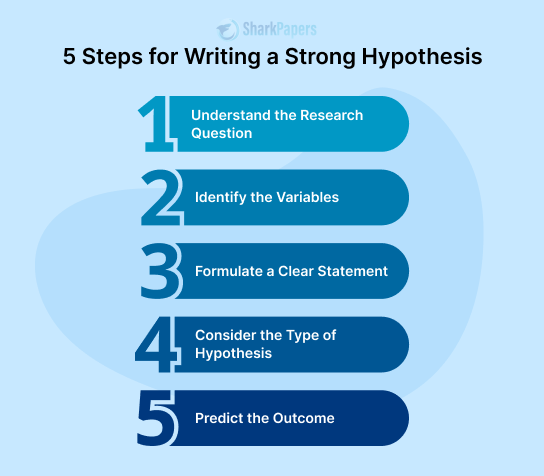

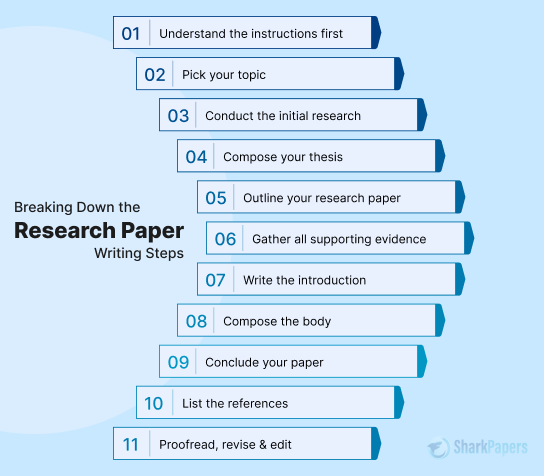






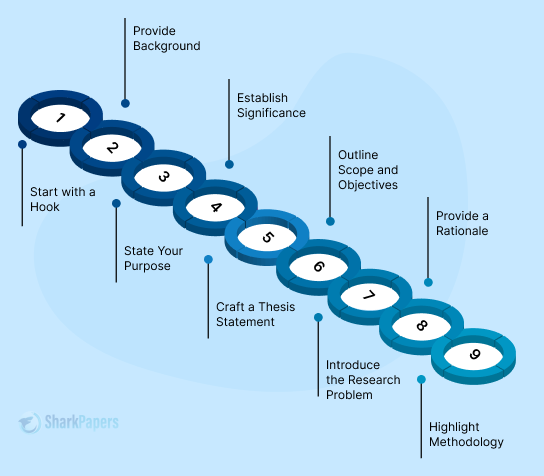
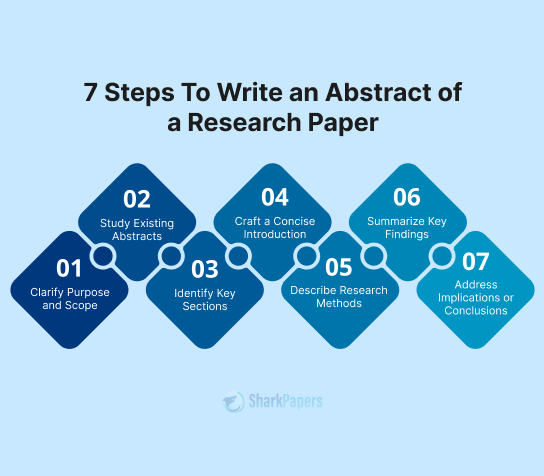
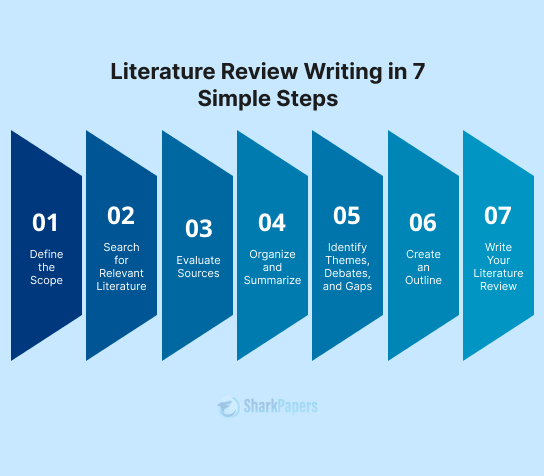
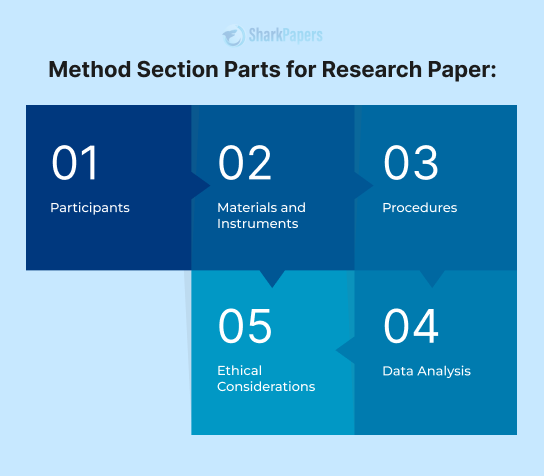
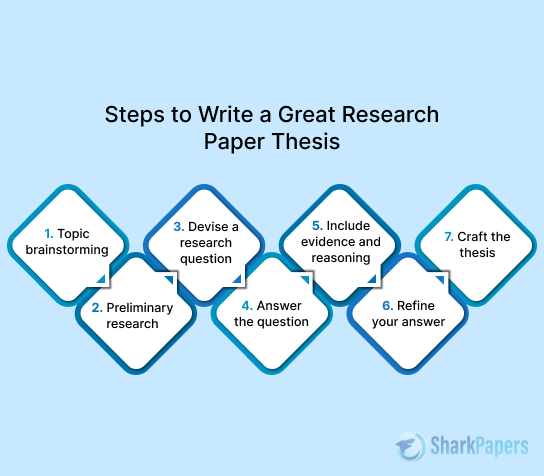
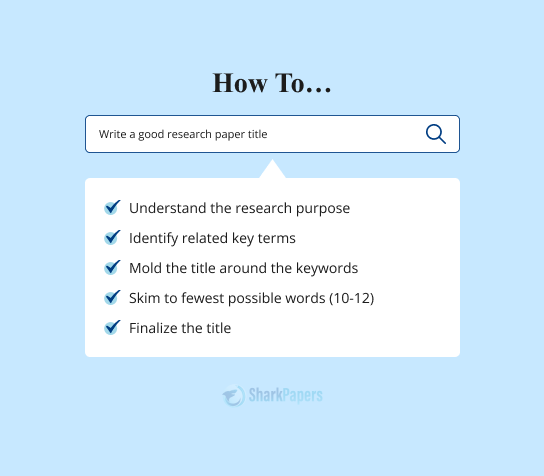
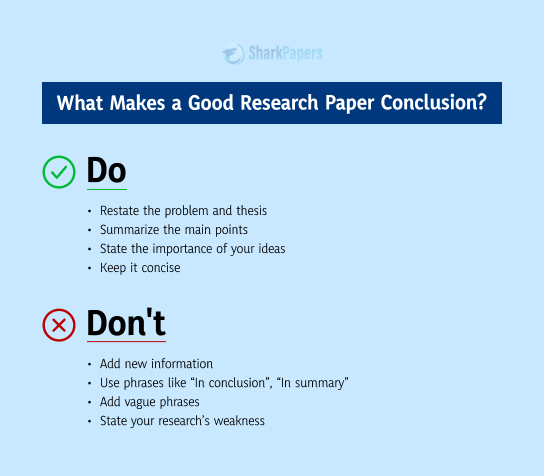
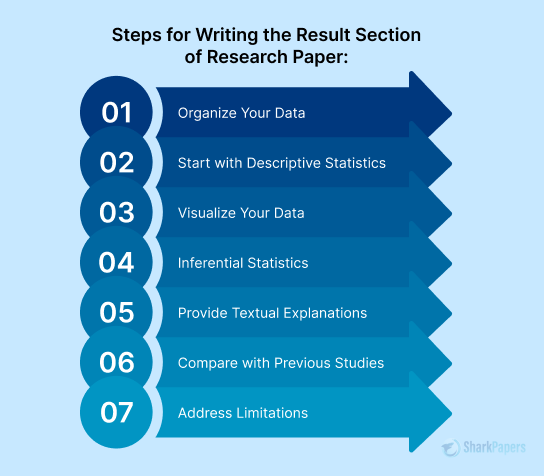
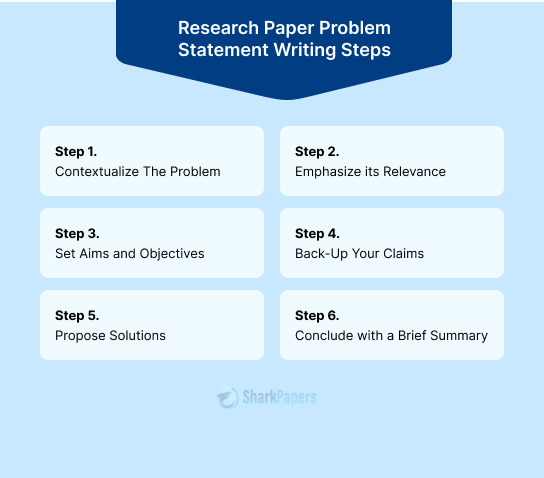
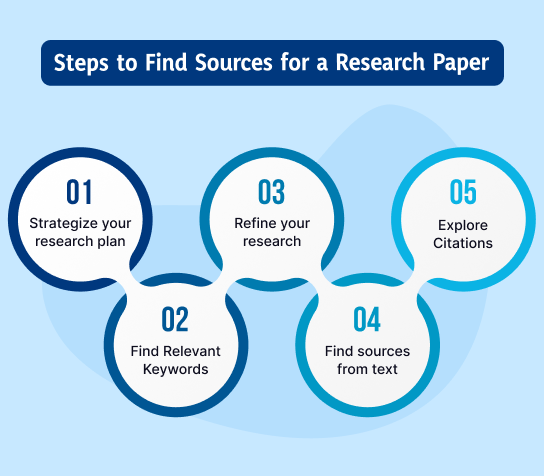
)
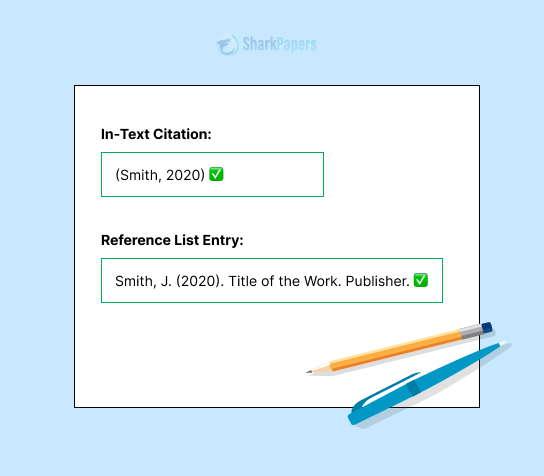
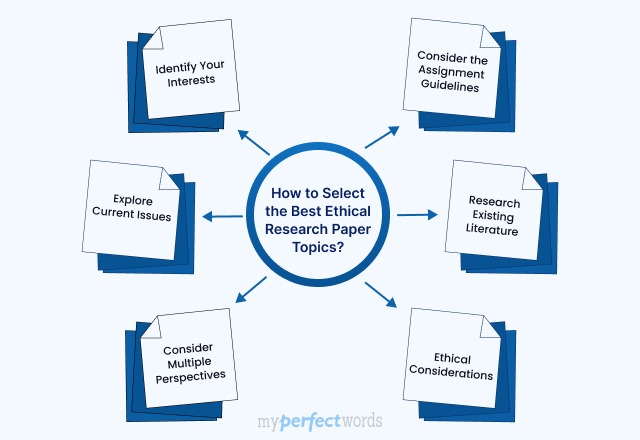
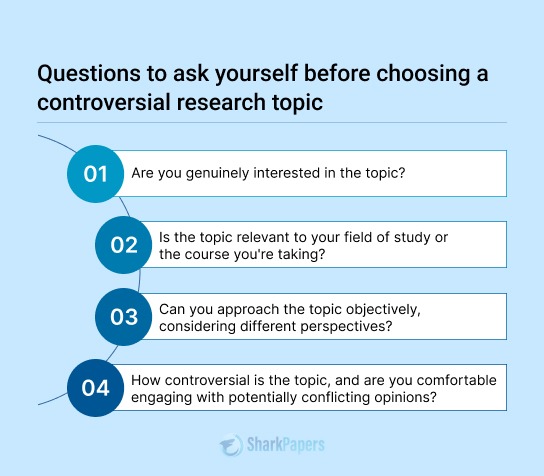
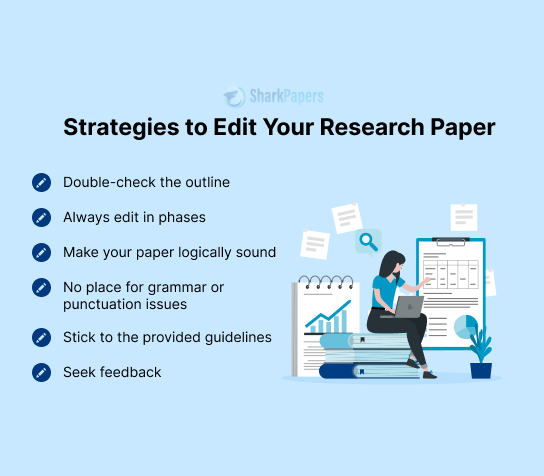
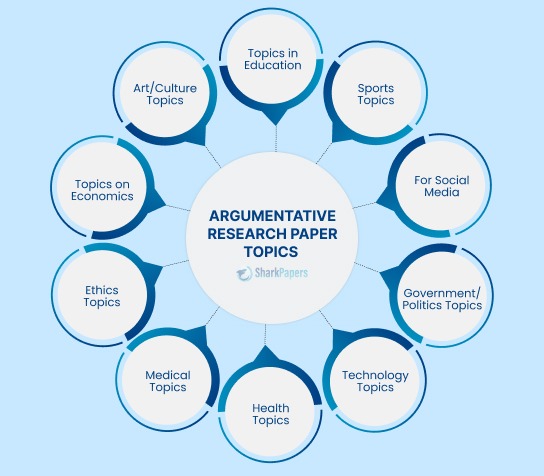

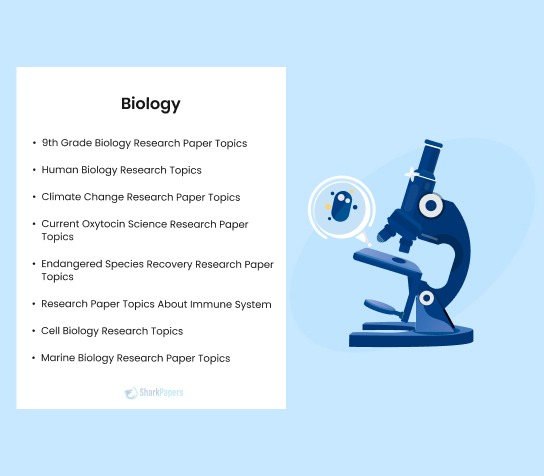
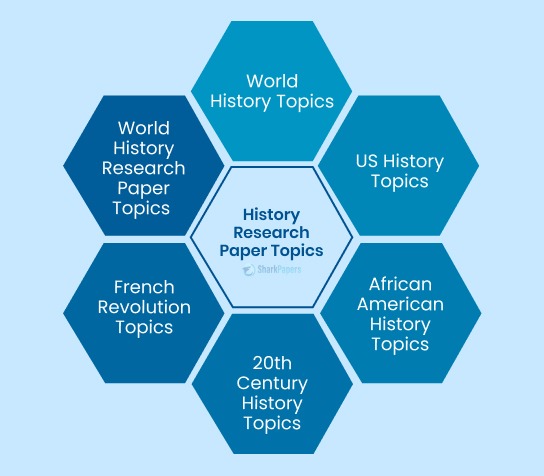
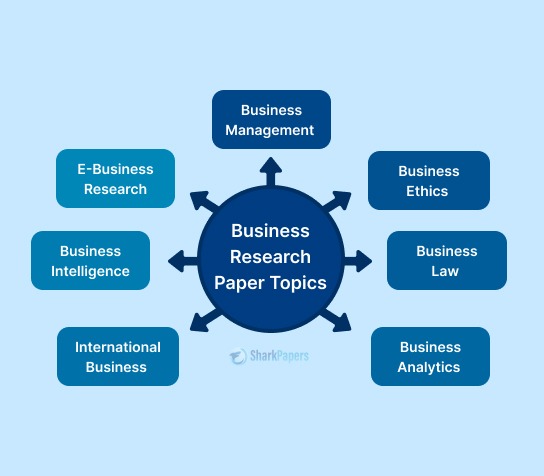
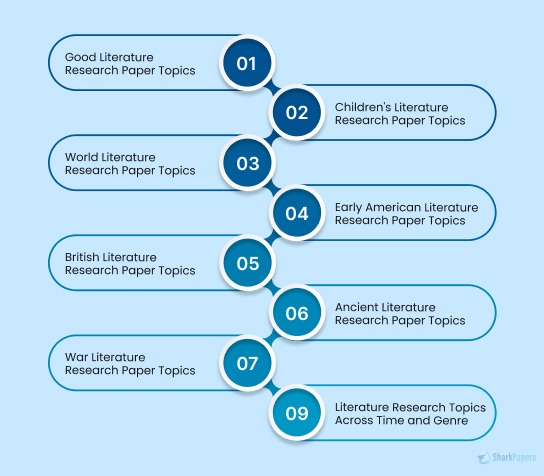
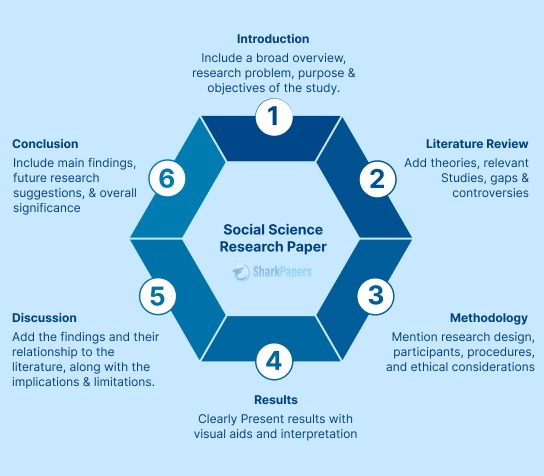
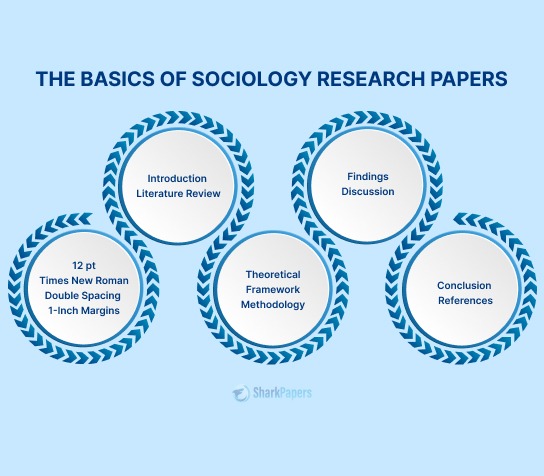
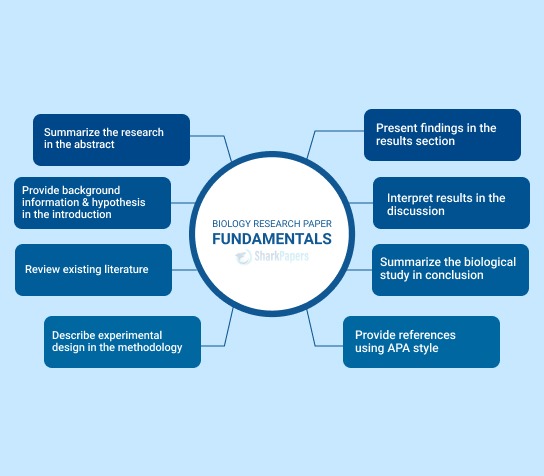
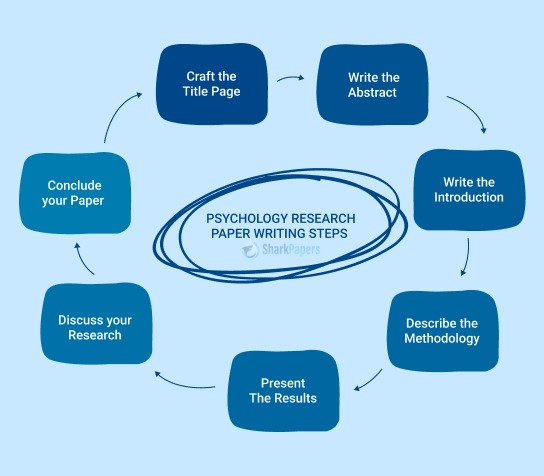
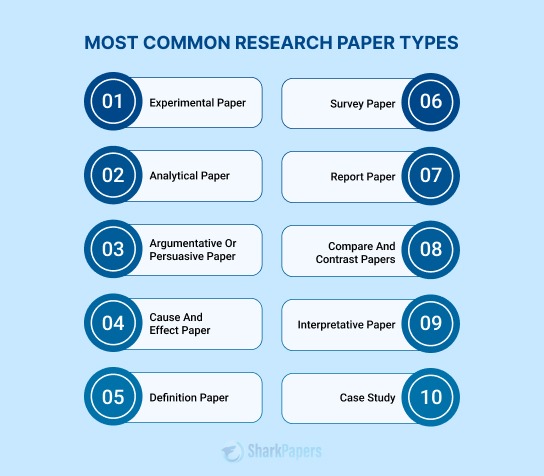

















-12114.jpg)














 Not seeing it? Check Promotions or Spam — inboxes get protective.
Not seeing it? Check Promotions or Spam — inboxes get protective.